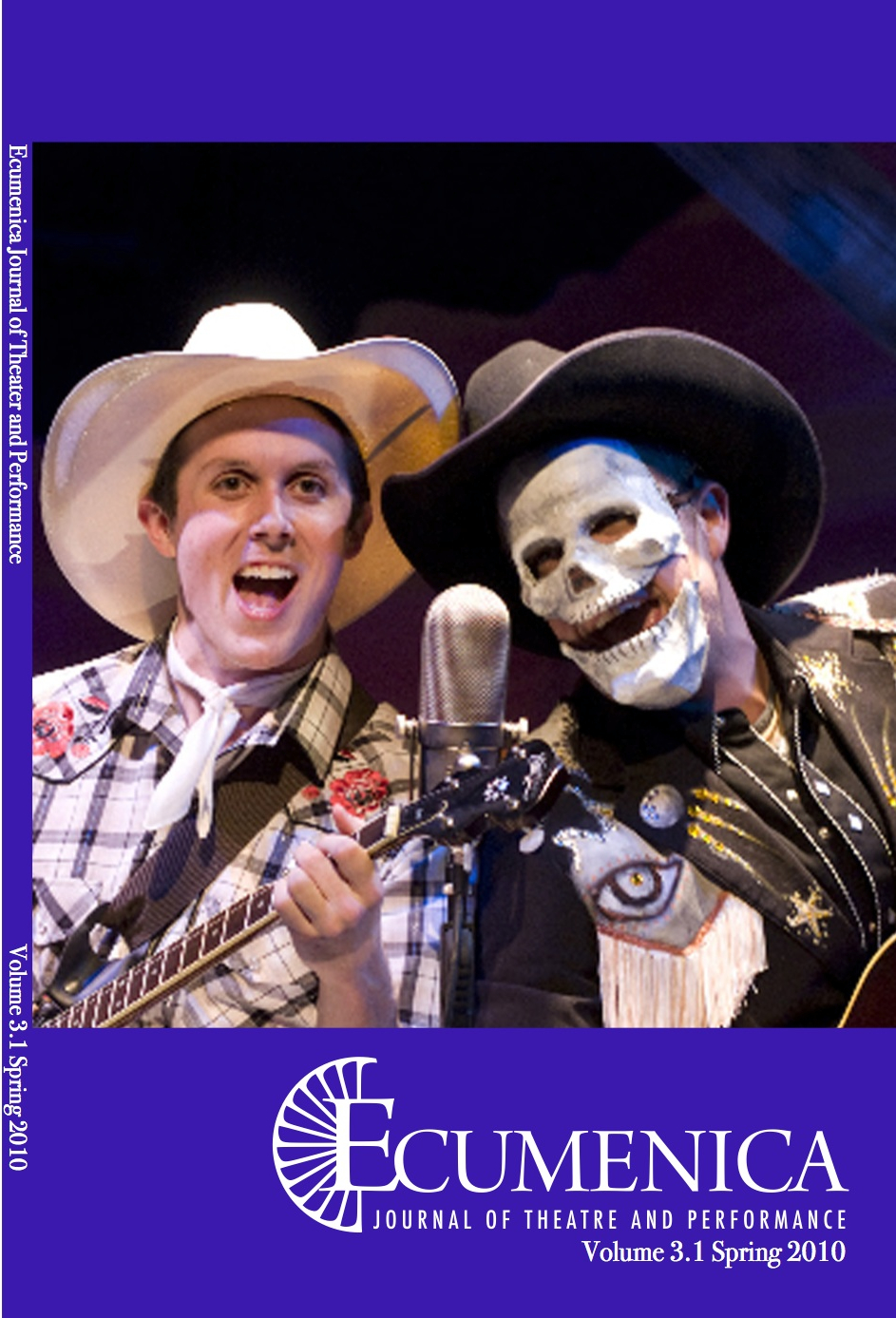
Spring 2010
Letter from the Editor
Carolyn D. Roark
Feature: Romanization, Rebellion, and the Theatre of Ancient Palestine
Miriam Kammer
Abstract: Because so little is known about theatre in ancient Palestine, the subject offers scholars an attractive enigma. On the one hand, Roman theatres—along with aqueducts and the control and use of local building resources by Romans—in ancient Palestine suggest a kind of Romanization of the local inhabitants. Theatres, in this reading, are tools of colonization. Used for more than just plays, they were sites of political rallies, worship, and culture. On the other hand, Jewish participation in theatre, despite biblical prohibitions against mimesis, may be more complicated than previously assumed. This article, looking at both the physical environment and the use of the building as venue for entertainment and politics, examines what is known about the theatre at the city of Sepphoris in Galilee. The arguments surrounding the use of this theatre highlight the debate about how successful or not successful Romanization was in ancient Palestine.
Feature: Andromeda and the Beauty of the African Soul: Greek Tragedy and the Early Christian Fathers
Robert Brophy
Thomas Donnarumma
Tom RobsonProfile: The Literary Managers and Dramaturgs of the Americas (LMDA)
Cynthia M. SoRelleBook & Performance Reviews:
- Wade Hollingshaus—Profanations, Giorgio Agamben
- Steven Wood—The Transformation of American Religion: How We Actually Live Our Faith, Alan Wolfe
- Guy Story Brown—The Henry VI Plays, Stuart Hampton-Reeves and Carol Chillington Butler
- Kevin Wetmore—Equivocation, Geffen Playouse, Los Angeles, CA
- James Brandon—All the Fame of Lofty Deeds, House Theatre, Chicago, IL.
- Matthew Saltzberg—Let Me Down Easy, Second Stage Theatre, New York, NY
- Rachel Steinberg—The Madonna Painter, Factory Theatre, Toronto, Canada
